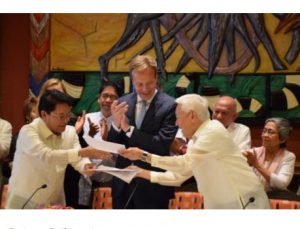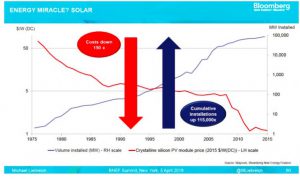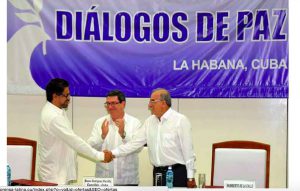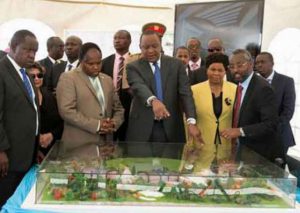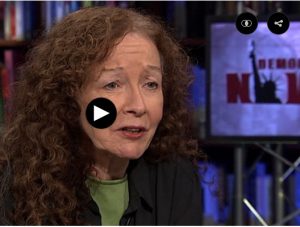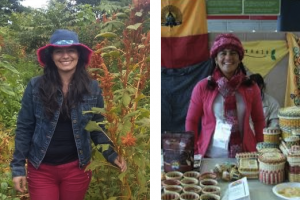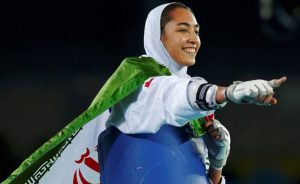… EDUCATION FOR PEACE …
Excerpts from The Education Trust Edition 132
We’ve asked educators across the country who teach in schools that serve large percentages of students of color and students from low-income families why they choose those assignments. What brings them back to the particular demands of these classrooms, year after year? Strong school leadership, networks of supportive colleagues, and the genuine opportunity to have a say in schoolwide decisions.
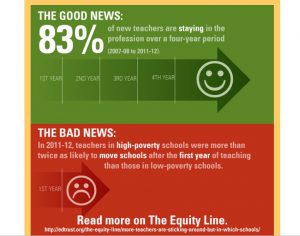
Click on image to enlarge
Here are four of the responses:
LETTING STUDENTS TAKE THE LEAD by Matthew Stensrud
Last school year, our principal invited me to take part in instructional rounds — an observation-based approach to better understand the learning occurring in our Title I elementary school. The reason? To determine why our school was having difficulty meeting various benchmarks on the end-of-year assessments.
The goal of rounds is to identify a problem of practice through brief observations of teachers, collect anecdotal evidence, and review this evidence to determine solution-
Reminding ourselves that students from low-income households are capable of higher-level thinking was the first step toward addressing this, and creating assignments that demand those higher levels was the next.
CATCHING BUTTERFLIES by Brooke Haycock
Each year, in alarming numbers, and with alarming predictability, they leave. Some, swept out in a cloud of dust and suspension records. Some, fall out through the loose weave of the safety nets educators hoped would hold them. Others exit on their own, seeing more opportunities outside the school walls than within.
Too often, they are cast as the very problems. The data points that drag schools down, the disciplinary actions, the truancy numbers, the failure rates, the call-outs, the walk-outs, the kick-outs.
These students are telling us in every way they know how that our schools are not working for them. And they are exactly the young people from whom we need to be seeking advice about how to draw them back in.
Lessons emerging from students and educators in schools like these have much to contribute to the conversation about how to support and meaningfully engage students, and to provide students — particularly those struggling in our current schools — what they need to take flight.
(Article continued in right column)
What is the relation between peace and education?
(Article continued from left column)
MY WORK IS AS DIVERSE AS MY STUDENTS by Rebecca Friedman
When I’m asked, “So, you’re a teacher; what do you teach?” I invariably reply, “Students.”
Here — in my once comfortably suburban, middle class, Western Washington school district, which now cushions the impacts of gentrification, faces the rise of the suburban poor, and welcomes ever-evolving immigrant communities — I’m allowed to be more than a Spanish and ELL teacher. I’m allowed to be a teacher of students.
When my school sought staff for a 15-hour credit retrieval course during school vacations, I was allowed to design curriculum for low-performing students to access ideas of epistemology, philosophy, decision-making, ethics, evolution, and interpretation of data. I told them: “You’re here because you’ve failed a course; I’m here because I know you can learn the hard stuff, and because you deserve more than just a work packet. We’re here to get us to graduation and beyond.”
I teach where I teach to be reminded that I have a choice: I could be a teacher who romanticizes the struggles of poverty, racial adversity, immigration, and countless other factors … or I could be a teacher who teaches students.
My choice is clear.
WE ALL GET BY WITH A LITTLE HELP FROM OUR COLLEAGUES by Meredith Hughes
Last year was a tough one — so tough, in fact, I applied for other jobs mid-year. I had moved school districts from south Arlington, Virginia, to the east end of Henrico County (outside Richmond), and I didn’t think I could do it. I had seen tough classes in south Arlington but this was a different kind of tough: Students blurted out throughout each lesson. Kids walked around the room, kicking desks or walls and yelling in anger. But as I was applying to other jobs, I began thinking about my students (sounds ridiculous to write that) — how could I leave them in the middle of the year? My students need structure and routine, and change is hard for them. As difficult as last year had been, I reminded myself that I am doing this job to help exactly these kinds of kids — the ones who do not have stability at home, the ones who come to school for structure. I am here to provide a safe, comfortable, and fun learning environment. And so, with support from my co-workers, I worked to figure out how to make my room less chaotic. I met with my grade-level team, as well as others, to talk about behavior management ideas — some even offered to stop by to check in on certain students. My admin team and I brainstormed ideas to better utilize school resources. And I came in some mornings to little notes of encouragement from the PE teacher across the hall. I never felt like I was alone, and slowly, but surely, we got to a good place. I am proud to say I am staying on this year. In fact, I have requested to follow my kiddos to third grade — because I want them to transition into their first testing grade with ease.
(Thank you to Janet Hudgins, the CPNN reporter for this article.)
